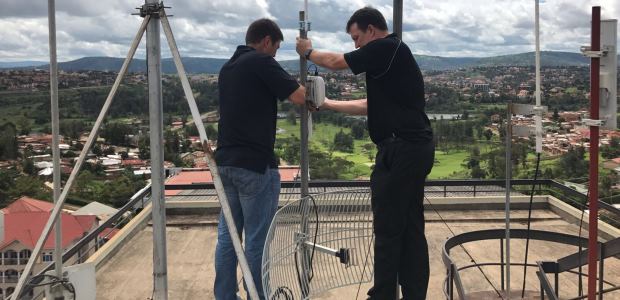
Rwandan Project Sets Stage for Smart City Initiatives
To demonstrate IoT's transformative potential, Inmarsat and its partners will deploy technology demonstrations around Kigali, including air quality sensors, a smart bus equipped with satellite Internet, and a precision farming initiative to increase crop yield and better manage water resources.
Inmarsat announced it is deploying LoRaWAN (a form of LPWAN, or Low Power Wide Area Network) infrastructure around the city of Kigali to support the Rwandan capital's flagship smart city project. The network will be active for an initial period of a year from May 1 and will be the connectivity platform for a variety of Internet of Things applications, servings as a blueprint for smart city projects throughout Africa.
The deployment coincides with the Transform Africa Summit on May 10-12, which will bring together African presidents, other dignitaries, and leading technology innovators to discuss plans for building a "smarter Africa."
The Inmarsat announcement said the LoRaWAN network has been developed in partnership with Actility, an industry leader in Low Power Wide Area Networks for industrial IoT; Inmarsat has recently invested in the company. The solution will provide city-wide coverage that enables organizations to develop and deploy IoT applications on a large scale and entrepreneurs to easily connect their front-end IoT devices through a middleware layer. Applications could address many urban needs, including transport, utilities, health, and education. This can directly benefit the environment; several technology demonstrations have already been deployed around Kigali, including environmental monitoring that includes sensors installed in buildings to monitor air quality.
To demonstrate IoT's transformative potential, Inmarsat and its partners will deploy a number of proof of concepts and technology demonstrations around Kigali, including the environmental sensors, a smart bus equipped with satellite Internet, and a precision farming initiative to increase crop yield and better manage water resources.
"Whilst many commentators have enthused about the possibilities of the IoT for the urban environment, from increasing utility usage efficiency to enabling a smooth network of autonomous cars, the reality is that it is still relatively untested and in its infancy," said Paul Gudonis, president of Inmarsat Enterprise. "Kigali is taking the lead with its smart city project, creating an IoT ecosystem where both private and government organizations can experiment with this technology in a vibrant and lively city. The project will therefore begin to take the potential of this exciting technology beyond futurist visions and into a real-world scenario, and we look forward to seeing the creativity of Kigali's many entrepreneurs, students, and businesses unleashed on the IoT network."
"We believe passionately in the power of the IoT to transform cities, industries, and agriculture," said Actility CEO Mike Mulica. "But, more importantly, we think IoT can change people's lives for the better, and nowhere more so than here in Africa. We've come here to learn and are proud to support this initial network rollout as the foundation on which smart cities across Africa will be able to build better futures for their citizens."